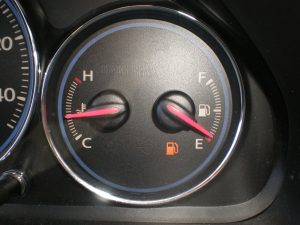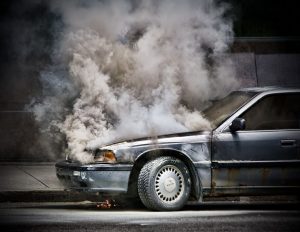A Guide To The Different Causes Of An Overheating Car Engine
When the engine light appears on the dashboard, it is generally a sign that you are about to experience problems with the car. There are many types of

problems that may occur, including low oil levels or a loose gas cap; however, one of the direst situations associated with the engine light is an overheating car engine.
Typically, the first sign of an overheating engine is the temperature gauge on the dashboard exceeding the maximum internal engine temperature level. Of course, not all individuals are aware of this pointer and in many cases the common sign is smoke being emitted from the engine itself. This article will describe the various reasons as to why a car engine may overheat.
1. Problems With The Radiator
Problems with the radiator is a common cause for engine overheating and this is possible in two ways; either through the use of a poor quality radiator fan or a faulty radiator. The aim of a radiator fan is to blow air over the radiator fins controlling the temperature of the coolant; however, if the fan becomes loose or has broken shards, it will not be able to push air through the radiator and the coolant will rise in temperature. This increased temperature will result in the engine overheating.
Of course, if the problem does not lie with the radiator fan, it is possible the radiator itself is faulty. A faulty radiator can present with clogs, leaks or broken fins causing the radiator to malfunction; thus, resulting in an increasing engine temperature and overheating car.
2. Problems With The Thermostat
One of the most common causes for an overheating car engine is a malfunctioning thermostat. The thermostat is a heat-sensitive valve that opens and shuts according to the engine’s specific temperature. If the thermostat becomes stuck in a certain position and is unable to operate, the temperature in the engine and car will increase dramatically causing overheating.
3. Problems With The Cooling System
Cooling system lines in a vehicle can easily become blocked with rust or debris;  therefore, increasing the chance of engine overheating. If the cooling system is not regularly flushed and replacements installed, the chance of overheating is raised dramatically. It should be mentioned that blockages in the cooling system are not the only problems associated with engine overheating. A second common cause of car overheating is potential leaks in auto cooling systems.
therefore, increasing the chance of engine overheating. If the cooling system is not regularly flushed and replacements installed, the chance of overheating is raised dramatically. It should be mentioned that blockages in the cooling system are not the only problems associated with engine overheating. A second common cause of car overheating is potential leaks in auto cooling systems.
Leakages within cooling systems occur when there is damage to the system’s lines, which may be a direct result of poor maintenance and ignoring blockages. In addition, the incorrect water-to-coolant concentration can cause leaks and result in engine overheating.
4. Problems With The Water Pump
The water pump is the core of the vehicle and is essential to cooling the car as it pumps coolant through the vehicle. Its role in temperature control is important due to the fact that the water pump propels the coolant through the cooling system; therefore, if the pump is damaged it is impossible for the coolant to reach the engine. This break in the movement of the coolant will result in the car engine overheating.
How Can I Manage An Overheating Car Engine?
Unfortunately, moving the car to the side of the road and “resting it to cool down” is not a useful option. In order to fully manage the overheating car engine, it is recommended you contact an auto technician, such as Ultimate Automotive, to assist with the problem.
Contact Us
Ultimate Automotive – Fleet Division
551 Main Street
Cromwell, CT 06416
service@ultimateautomotive.net
(860) 635-4133
Business Hours:
Monday – Friday: 8:00am – 5:00pm
Early Hours Available

Leave a Reply